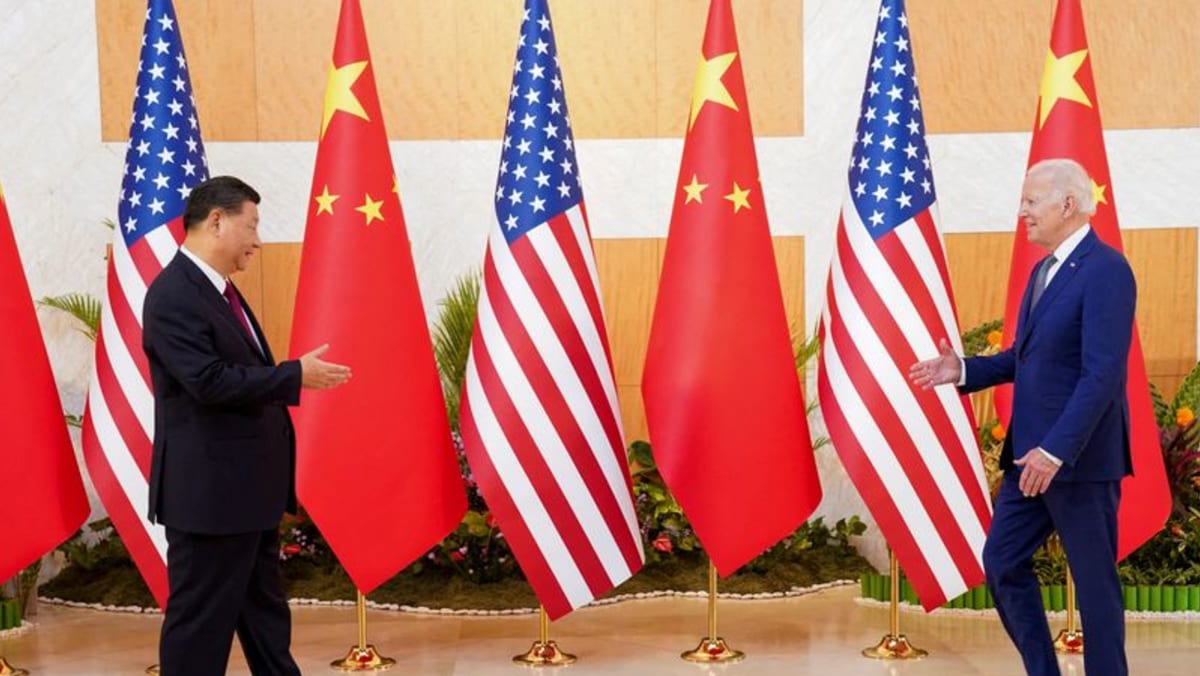
HARD TO GET
China has played hard to get in response to an eagerness by Washington to secure a summit, with Beijing suggesting that Xi's attendance hinged on the U.S. showing "sufficient sincerity."
The Biden administration has faced criticism from Republicans for playing to Beijing's hand, but argues the stakes are so high that direct engagement, particularly at the leader level, is vital to managing tensions and preventing disputes between the superpowers over issues like Taiwan and the South China Sea from veering into open conflict.
Despite the difficulties nailing down the summit, China has been struggling with economic issues after years of strong growth and has signaled that it wants friendlier ties by agreeing to preparatory meetings, such as nuclear arms control discussions that Washington has sought for years.
Protesters are expected in San Francisco next week - some to support Beijing and others to demonstrate against China's human rights record.
Biden will welcome other APEC leaders - including from Vietnam, the Philippines, Canada and Mexico - and both he and Xi will be playing to the gallery.
Matthew Goodman, a trade expert who was White House coordinator for the last US-hosted an APEC summit in 2011, said the US will seek to sell itself as the most dynamic economic partner for Asia, in contrast with a slowing China.
"There are a lot of concerns about China's economic conditions and its policies in the region," Goodman said. "I don't think they're going to explicitly try and twist the knife as it were, but I think they will try to show by comparison that the US is growing well."
TRADE
US Treasury Secretary Janet Yellen - who will meet with Chinese Vice Premier He Lifeng in San Francisco this week - has said the U.S. would not ask APEC members to choose between Beijing and Washington. She also acknowledged that while the US was decreasing its dependence on China, full de-coupling of the US and Chinese economies was "simply not practical."
But Washington has made clear that it would help allies and partners confront what it describes as Beijing's economic "coercion" - the use of economic pressure to get states to conform to China's policies. China has accused the US of the same thing in the past.
"Our door is open to any country or economy facing PRC (People's Republic of China) economic coercive threats," Melanie Hart, a senior China policy adviser at the State Department, said on Monday.
Biden will be buoyed by a Pew Research Center poll showing he is winning the battle for public opinion over Xi and with the US still considered the world's leading economic power by most people in 24 countries surveyed.
The US president will be eager to reinforce that image by showing progress in the US-led Indo-Pacific Economic Framework for Prosperity, an initiative aimed at stepping up engagement in Asia to compete with China.
However, trade experts say Washington has so far failed to convince Asia it was more than a pale alternative to a fully-fledged regional trade deal President Donald Trump quit in 2017.
Xi will be eager to court US businesses after China recently recorded its first-ever quarterly deficit in foreign direct investment. Two sources familiar with plans said U.S. business groups and foreign policy think tanks aimed to jointly host Xi for dinner in San Francisco.
"We're going to see next week a series of high-level engagements between the Chinese and U.S. companies and investors, trying to send a signal that China is open for business," Jude Blanchette, a China expert at CSIS, told reporters.
That would include "companies flocking to meet with Xi Jinping and have dinner with him," he said.
https://news.google.com/rss/articles/CBMiSWh0dHBzOi8vd3d3LmNoYW5uZWxuZXdzYXNpYS5jb20vYXNpYS91cy1jaGluYS10YWxrcy1iaWRlbi14aS1hcGVjLTM5MDU5MzHSAQA?oc=5
2023-11-08 19:55:00Z
CBMiSWh0dHBzOi8vd3d3LmNoYW5uZWxuZXdzYXNpYS5jb20vYXNpYS91cy1jaGluYS10YWxrcy1iaWRlbi14aS1hcGVjLTM5MDU5MzHSAQA
Tidak ada komentar:
Posting Komentar